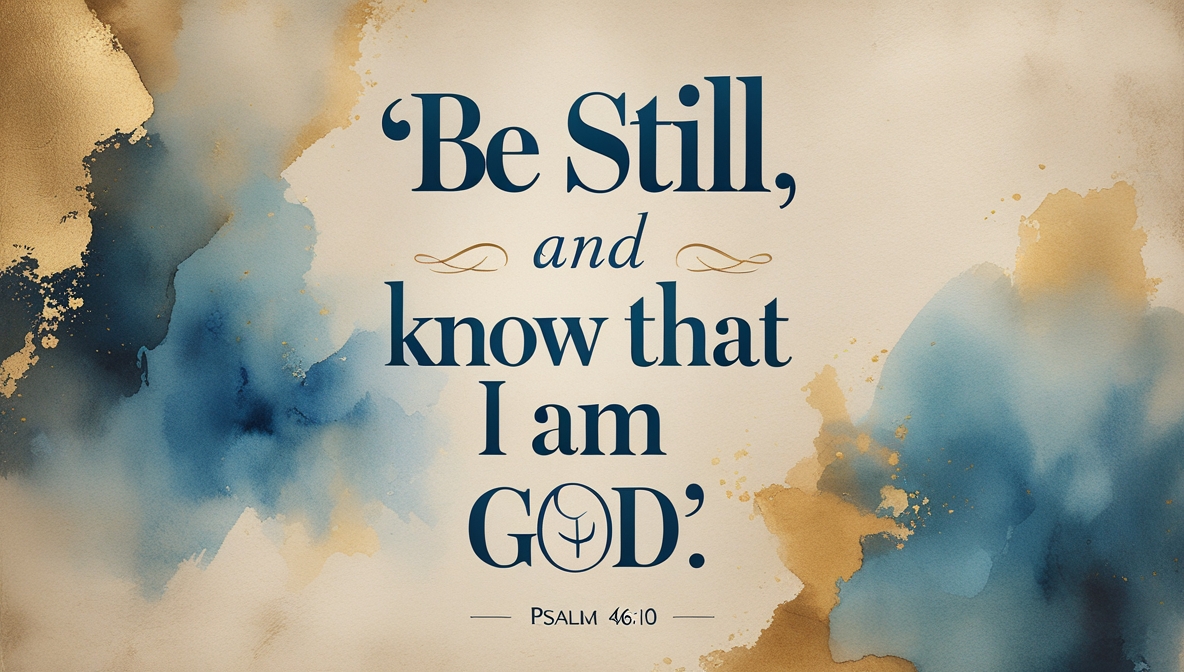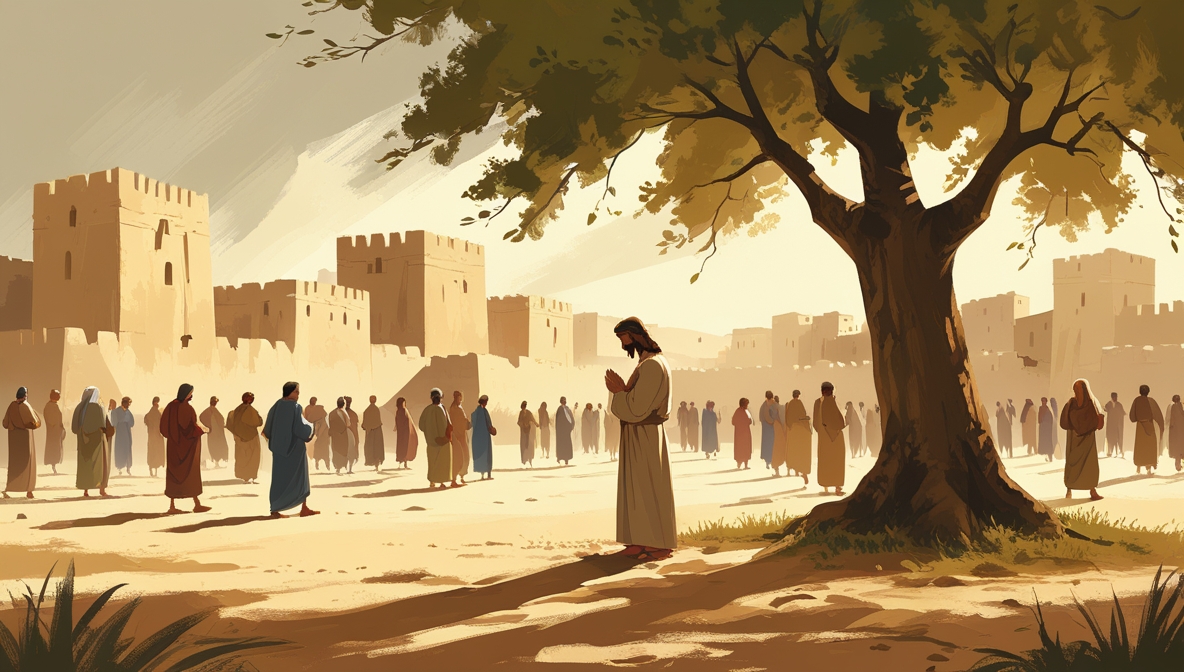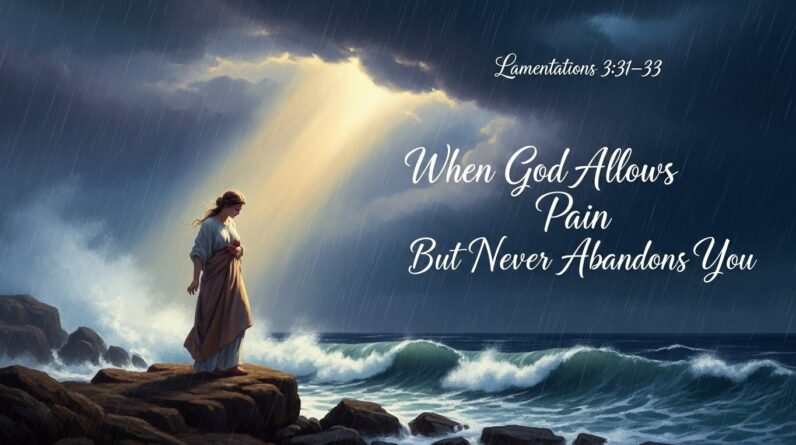Be Still And Know — Finding God’s Presence In Psalm 46:10

Introduction
Have you ever felt like life is a constant rush—texts pinging, meetings stacking, thoughts spinning—and you long for a moment of real calm? You’re not alone. Somewhere between the noise and the responsibilities, God whispers a simple, radical invitation: “Be still and know that I am God.” That invitation from Psalm 46:10 can feel like a lifeline when everything inside you wants to control outcomes, fix problems, or move faster. In this article you’ll explore what that phrase really means, why it matters in your life, and how you can practice this invitation today so you can sense God’s presence more clearly.
The Bible Foundation
Read the verse here: Psalm 46:10 (NIV)
Psalm 46:10 — “He says, ‘Be still, and know that I am God; I will be exalted among the nations, I will be exalted in the earth.’”

This short verse sits in a psalm that begins with God as refuge and strength, present in trouble. The psalm paints a picture of frightening things—earthquakes, nations in turmoil—yet it ends with God’s calm command. The phrase “Be still” is not a casual suggestion. It’s spoken out of confidence: God is with you, so stop fighting alone and recognize who is ultimately in control. In plain language, the verse tells you to pause, stop striving, and remember that God is God—powerful, present, and worthy of trust.
Understanding the Core Truth
At the heart of Psalm 46:10 is a simple, life-changing truth: stillness is not emptiness; it’s surrender. When God says, “Be still, and know that I am God,” He invites you to stop trying to control everything and to let His presence define the moment. This message matters because your identity and peace don’t come from your performance, plans, or the chaos around you — they come from knowing God.
Think of life as a river. You can paddle frantically against the current, exhaust yourself, and end up nowhere, or you can allow the river’s flow to carry you while you keep your eyes on the horizon. “Be still,” asks you to make that shift from frantic energy to focused trust.
Going Deeper — The Hidden Meaning

When you dig under the surface, “Be still” carries layers: theological, emotional, and practical. The original Hebrew conveys the idea of ceasing from striving or letting go of tension. That means your stillness is not passivity; it’s active trust. It’s choosing to stop your internal warfare — the thoughts that try to rescue you — and to place your confidence in God.
Imagine Peter walking on water. His first steps succeed while his eyes are on Jesus. The moment he becomes anxious and focuses on the wind, he starts to sink. The deeper lesson of Psalm 46:10 is the same: your soul steadies when your gaze is fixed on God, not the storm. A Bible story that echoes this idea is Elijah’s experience in 1 Kings 19. After great triumph and exhaustion, he encounters God not in wind or earthquake but in a “gentle whisper.” God’s presence often shows up in quiet, not clamor.
This hidden meaning helps you reframe failure and fear. Instead of interpreting a crisis as proof of God’s absence, you begin to see crises as invitations to remember who God is and to let His presence shape your response.
Modern Connection — Relevance Today
In the modern world, your capacity to be “still” is constantly attacked. Notifications, news cycles, economic pressures, and a culture of productivity tell you that rest is indulgence, not necessity. Yet Psalm 46:10 cuts across cultural demands: stillness is a spiritual discipline with practical benefits. When you slow down, your brain has space to remember God, analyze rightly, and respond with wisdom instead of panic.
This looks different in family life, work, and personal struggles. At work, being still could mean pausing before answering an urgent email and asking God for wisdom. At home, it might mean carving out ten minutes after the kids are asleep to read Scripture or simply breathe and thank God. In spiritual struggles, stillness allows you to notice God’s presence — the gentle proof that you are not abandoned. When you practice being still, your priorities shift: you choose presence with God over frenetic productivity.
Practical Application — Living the Message

You don’t need a monastery to practice Psalm 46:10. Here are workable steps you can start today to embody “Be Still And Know”:
- Start small with silence. Set a timer for five minutes each morning to sit quietly, breathe, and say a short prayer: “Lord, I’m listening.” You’ll be surprised how quickly those minutes anchor your day.
- Use Scripture as your anchor. Read Psalm 46 aloud and let one phrase sink in for a few minutes. Repeating the verse slowly helps your mind settle and makes the truth sink deeper.
- Create practical boundaries. Turn off push notifications for a set time, or place your phone face down during meals and family time. These small actions are modern ways of being still.
- Practice breath prayer. Breathe in slowly, thinking “Be still,” and breathe out while thinking, “and know.” Pair it with a short Scripture like Philippians 4:6-7 for anxiety release.
- Make Sabbath intentional. Put aside work for regular rest. Sabbath trains you to trust that God’s work continues even when you pause.
These are simple, repeatable habits. You’re forming a muscle of trust — the more often you pause and place your trust in God, the easier it becomes when storms arrive.
Faith Reflection Box
Pause now. Close your eyes for thirty seconds, breathe slowly, and ask: What am I trying to control that God is asking me to release? What would change if you believed God’s presence was enough?
Key Takeaways:
- Stillness is an act of faith: choosing confidence in God over frantic control.
- Be practical: start with short, daily pauses and Scripture to build the habit.
- God’s presence is found more in quiet trust than in solving every problem yourself.
- Remember: “Be Still And Know” is both an invitation and a practice, not a one-time experience.
Q&A
Q1: Does “Be still” mean I should be passive about problems?
Answer: Not at all. “Be still” invites you to stop frantic self-reliance and to act from a place of trust. You still do the work God calls you to—apply for jobs, seek medical care, repair relationships—but you do it without the inner panic that assumes everything depends on your strength alone. This balance of responsible action plus surrendered trust is described in many practical faith resources; see this post on trusting God in hard times: How To Trust God When Everything Falls Apart. For a biblical perspective, consider James 4:7, which encourages submission to God. (Approx. 120 words)
Q2: How can I practice being still when I have small children or a busy job?
Answer: Stillness doesn’t require long stretches of solitude; it’s about intentional micro-practices. Use short, sacred pauses—while waiting for the kettle, during a baby’s nap, or in your car before a meeting—to breathe and pray a one-sentence prayer like “Lord, I trust You.” Create rituals: a morning two-minute Scripture reading, or a bedtime gratitude list. These small rhythms cultivate your “stillness muscle.” For practical ideas for busy families, pair this habit with Psalm 127:2 to remember that not all success comes from endless striving. (Approx. 120 words)
Q3: Can Psalm 46:10 really help with anxiety?
Answer: Yes. Anxiety often thrives on trying to predict and control the future. Psalm 46:10 interrupts that by redirecting your attention to God’s sovereignty. When you practice stillness, you create space to replace anxious thoughts with truths about God’s presence, care, and power. Combine stillness with professional help when needed—therapy or counseling are God-honoring tools. For a deeper step-by-step practice, check this guide on finding peace in Scripture: https://biblestorieshub.com/daily-scripture-reflection-finding-peace-in-chaos/. Also reflect on Philippians 4:6-7 for a biblical prescription for anxious hearts. (Approx. 120 words)
Q4: What does “I will be exalted among the nations” mean for me today?
Answer: That clause points to God’s global rule and personal reign in your life. It’s a reminder that God’s authority stretches beyond your individual circumstances—He is working in the big picture. For you, it means your small acts of trust are part of God’s larger purpose to reveal Himself to others. When you live out the stillness of trust, you display a different kind of power to a watching world. Explore how your personal spiritual life connects to God’s mission in this related post: https://biblestorieshub.com/faith-in-action-living-out-your-beliefs-in-a-secular-world/. Reflect on Matthew 5:16, which encourages letting your faith shine so others see God. (Approx. 120 words)
Conclusion & Reflection
“Be Still And Know” is a short phrase with the power to change how you live, think, and pray. It calls you to trade frantic control for quiet trust, and it promises that when you pause, you’ll encounter the presence of the God who is bigger than your fears. Today, choose one small practice—five minutes of silence, a breath prayer, a short Scripture reading—and see how God meets you in that simplicity. Let your life become a gentle testimony: when storms come, you are learning to anchor in God rather than in your own solutions.

A brief prayer: Lord, help me to be still. Teach me to stop striving and to recognize Your presence. Calm my heart, steady my hands, and help me trust You more each day. Amen.
Explore More
For further reading and encouragement, check out these posts:
👉 7 Bible Verses About Faith in Hard Times
👉 Job’s Faith: What We Can Learn From His Trials
👉 How To Trust God When Everything Falls Apart
👉 Why God Allows Suffering – A Biblical Perspective
👉 Faith Over Fear: How To Stand Strong In Uncertain Seasons
👉 How To Encourage Someone Struggling With Their Faith
👉 5 Prayers for Strength When You’re Feeling Weak

📘 Jesus and the Woman Caught in Adultery – Grace and Mercy Over Judgement
A powerful retelling of John 8:1-11. This book brings to life the depth of forgiveness, mercy, and God’s unwavering love.
👉 Check it now on Amazon 🛒💥
🔥 “Every great message deserves a home online.” 🌍💬🏡
Don’t let your calling stay hidden. Start a Christian blog or website using Hostinger — with 99.9% uptime, a free domain, and SSL, your voice can shine for God’s glory anytime, anywhere.
💥 Begin today. 🛒 Try it RISK-FREE! ✅
✝️ “Your body is God’s temple — care for it with purpose.” 💪💖🏛️
Renew your energy and restore balance naturally. Mitolyn helps support a healthy metabolism, giving you the vitality to live out God’s calling with strength and confidence.
🔥 Unlock Your Metabolic Power! ⚡Burn More Calories & Feel Great With Mitolyn. 💪
👉 Start Today. 🚀 Check Price Now. 🛒💰
💰 As a ClickBank & Amazon Affiliate, I earn from qualifying purchases.
📖 Acknowledgment: All Bible verses referenced in this article were accessed via Bible Gateway (or Bible Hub).
🚀 Want to explore more? 👉 Dive into our new post on Why Jesus? and experience the 🔥 life-changing truth of the Gospel!








